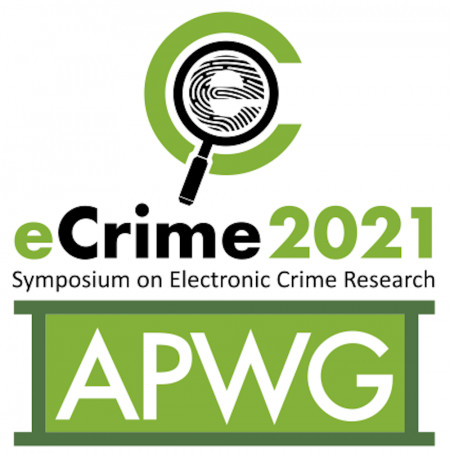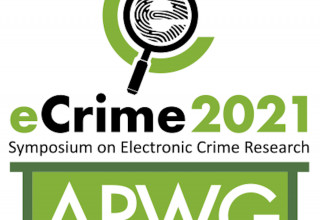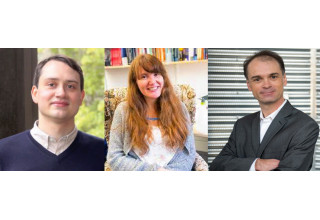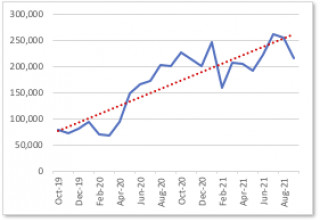The 2021 APWG eCrime Symposium Examines the Economic and Behavioral Foundations of Cybercrime's Runaway Expansion

CAMBRIDGE, Mass., November 24, 2021 (Newswire.com) - APWG's Symposium on Electronic Crime Research (APWG eCrime), the world's only peer-reviewed conference exclusively for cybercrime research, examines the economic foundations and behavioral aspects that animate the bourgeoning global, multi-billion-dollar cybercrime plexus at its 16th annual symposium next week.
"Our latest quarterly report shows phishing campaigns doubling since early 2020 - and the number of brands under attack reached soaring new record highs this fall. It's never been more important to probe baseline and bedrock phenomena in order to focus resources on this runaway scourge — one that today threatens national economies," said APWG Secretary General and the eCrime symposium's founder Peter Cassidy.
Twelve peer-reviewed papers have been officially accepted for the 2021 edition APWG eCrime, to be held on December 1-3. Those papers, scored by the symposium's review committee, will be included in the conference's presentations along with numbers of panels and talks from other correspondent researchers from industrial and academic research centers affiliated with the APWG.
The conference notes page and registration link is here: https://apwg.org/ecrime2021/
Students requiring discounts should contact symposium managers at apwg_events@apwg.org
The symposium's proceedings are in English.
Economics and Public Policy
Darkweb markets are the focus of several contributions at this year's APWG eCrime.
The accepted papers include a study of darkweb marketplaces; one compares English-language and Chinese-language Darkweb markets; a third study delineates the roles and criteria for role separation in these shadowy digital marketplaces.
One study compares trading activities taking place at forums in the Surface Web and in the Dark Web.
A cryptocurrency marketplace study examines the impact of law enforcement actions on cryptocurrency market prices.
APWG chairman David Jevans keynotes on AML efforts worldwide being directed at suppression of cryptocurrency's utility as a cash-out instrument for organized crime.
Behavioral and Social Aspects
Behavioral and social aspects submissions this year include: a study looking at several personality traits to see if they impact the subjects' ability to detect deceptions typically employed by cybercrime gangs; and a social-aspects paper examining the risk perceptions of cybercrime in underground forums.
Technology, Data Logistics and Data Forensics
Technically oriented papers this year include: one with surprising results in assessing phishing reports on Twitter; an analysis of the evolution of 14 distinct IoT Linux malware family that emerged in the last two years; a fascinating analysis of the security and privacy risks of phone number recycling in the United States; and a study of domain squatting abuse employed against online banking brands.
The full agenda is here: https://apwg.org/ecrime2021/
New Symposium Management Team
APWG eCrime's yield of cutting-edge papers this year was curated by a new management team for the 2021 edition of the symposium.
For APWG eCrime 2021, the University of Cambridge's Alice Hutchings, a University Lecturer in the Security Group at the Computer Laboratory, a Fellow of King's College and Deputy-Director of the Cambridge Cybercrime Centre, served as the General Chair of the symposium.
University of Ottawa's Guy-Vincent Jourdan, a full professor and program coordinator for cybersecurity at the School of Electrical Engineering and Computer Science, and an inaugurating research fellow of the APWG Crypto Currency Working Group, assisted in the development of the symposium this year as Program Chair.
Laurin Weissinger, lecturer at The Fletcher School of Tufts University, and Cybersecurity Fellow of the Cyber Initiative at Yale Law School, served as this year's Publications Chair for the symposium.
Media Contact: apwg_events@apwg.org or +1 617 669 1123
About the Symposium on Electronic Crime Research (APWG eCrime)
The Symposium on Electronic Crime Research (APWG eCrime) was founded in 2006 as the eCrime Researchers Summit, conceived by APWG Secretary General Peter Cassidy as a comprehensive, multi-disciplinary venue to present basic and applied research into electronic crime and engaging every aspect of its evolution - as well as spotlighting technologies and techniques for cybercrime detection, response, forensics and prevention.
Since then, what had been initially a technology-focused conference has incrementally expanded its focus to cover behavioral, social, economic, and legal / policy dimensions as well as technical aspects of cybercrime, following the interests of our correspondent investigators, the symposium's managers as well as the APWG's own directors and steering committee members.
Scores upon scores of papers exploring these dimensions of cybercrime at APWG eCrime have been published by the IEEE <APWG | eCrime Research Papers> as well as by Taylor & Francis and the Association of Computing Machinery (in the very earliest years of the symposium).
With its multi-disciplinary approach, APWG eCrime every year brings together the most heterogeneous community of counter-eCrime researchers and industrial stakeholders to confer over the latest research, and to foster collaborations between the leading investigators in this still nascent field of cybercrime studies.
The power of that community, over the years, has been expressed in their contributions to research in academia and industry, cited in the papers above, their innovations for industry - and the globally scaled research projects they've organizing today: https://ecrimeresearch.org/applied_research/
Source: APWG eCrime Symposium



